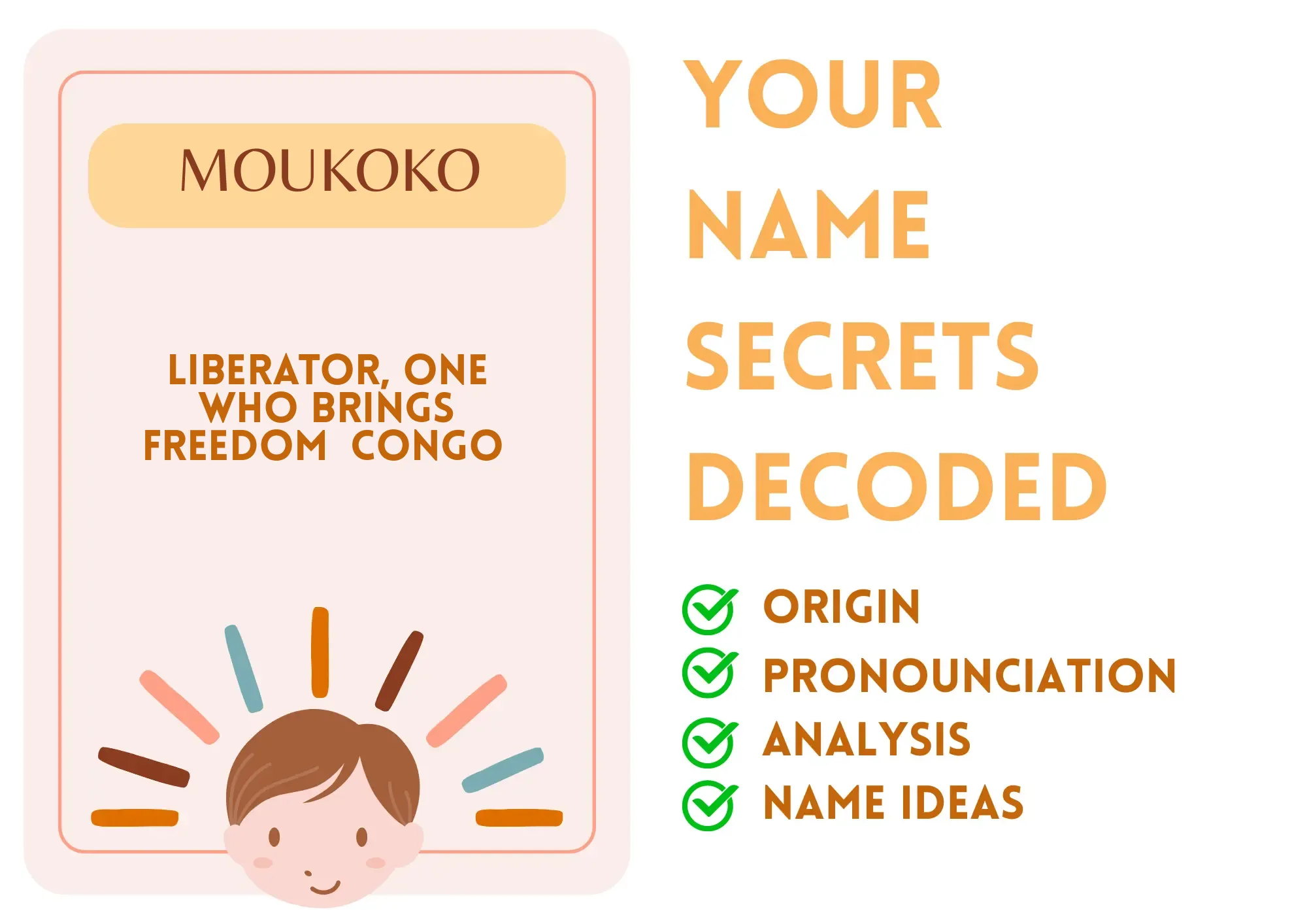
Moukoko
Moukoko is a unique and culturally rich name primarily associated with African heritage. The name is often linked to communities in the Congo region and holds various meanings depending on the local dialect. It is predominantly used for males but can also be found as a unisex name in some contexts. Moukoko signifies 'the liberator' or 'one who brings freedom', resonating deeply with themes of resilience and strength.
The name enjoys a positive perception due to its powerful meaning, evoking feelings of empowerment and identity. Moukoko is relatively easy to write and pronounce, with common nicknames that often derive from its phonetic components.
This name has gained recognition in various cultural narratives, particularly in African diaspora literature and music, symbolizing pride and heritage. Parents often choose Moukoko for its resonance with freedom and liberation, valuing its uniqueness and cultural significance.
Basic Information
Gender: Boy
Sounds Like: moo-KOH-koh
Pronunciation Explanation: The name is pronounced with an emphasis on the second syllable 'KOH', where it sounds like 'moo' followed by 'KOH' and ends with 'koh'.
Summary and Meaning
Meaning: liberator, one who brings freedom (Congo)
Origin: The name Moukoko has its roots in Congo, connected to various ethnic groups and their languages, highlighting its African heritage.
Usage: Moukoko is traditionally a masculine name but can be used as unisex in some cultures.
Name Number (Chaldean)
Name Number (Pythagorean)
Popularity (Global Rank)
Overall: 279843
Boys: 72681
Most Popular in
Religious and Cultural Significance
Religion: Indigenous
Background: Moukoko may be associated with indigenous belief systems that value connection to ancestry and heritage, rather than a specific organized religion.
Cultural Significance: The name symbolizes strength, liberation, and cultural pride particularly in the context of post-colonial African identity.
Historical Significance: Moukoko resonates historically with themes of liberation in African contexts, often invoked during movements for freedom and independence.
Popular Culture
Literature and Mythology: Moukoko appears in African folklore, often referencing figures associated with freedom and liberation, celebrating indigenous storytelling.
Movies and Television: The name may be represented in films or documentaries focusing on African history and culture, often symbolizing struggle and triumph.
Feelings and Perceptions
Perception: Moukoko is viewed positively, appreciated for its uniqueness and strong meaning associated with heritage and identity.
Positive Feelings: Unique, strong, empowering, culturally rich, prideful.
Negative Feelings: Might be unfamiliar to certain audiences, leading to mispronunciation.
Practical Considerations
Ease of Writing and Calling: Moukoko is moderately easy to write and pronounce. It consists of seven letters and three syllables, which may require clarification in unfamiliar contexts.
Common Typos and Misspellings: Mokoko,Moukaka,Moukkoko,Mouktoo
Common Nicknames: Mou,Koko,Koko-Mou
Moukoko Popularity
Moukoko Usage and Popularity By Country
| Country | Rank (Overall) |
|---|---|
| Cameroon | 3530 |
| Gabon | 4685 |
| Saudi Arabia | 40278 |
| France | 41679 |
| Belgium | 48129 |
| South Africa | 120008 |
| Canada | 149654 |
| United States | 344452 |
Moukoko Usage and Popularity By City
| City | Rank (Overall) |
|---|---|
| Paris | 21699 |
Compatibility Analysis
Famous Persons Named Moukoko
No results found for Moukoko.
Related Names
Similar Sounding Names:
Moko,Koko,Moky